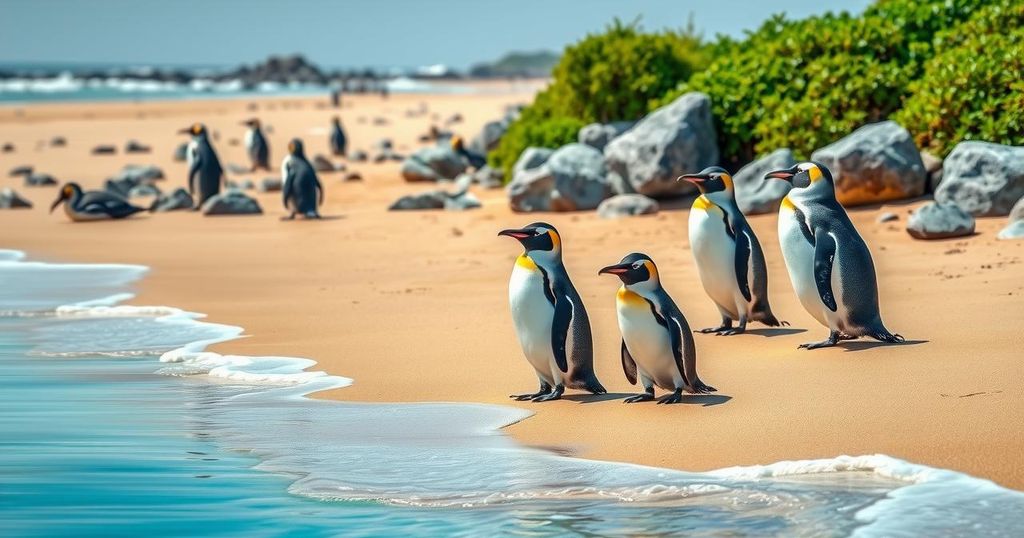This article discusses the conflicting interests surrounding the conservation of South Africa’s African Penguins, which are critically endangered. It highlights the economic value of penguin colonies, valued at R2 billion to R4.5 billion, and the potential growth of penguin tourism. Despite established no-fishing zones, penguin populations continue to decline due to various human-related factors. Recent legal actions may prompt further protective measures, emphasizing the need to balance economic and ecological interests for sustainable outcomes.
The conservation of South Africa’s critically endangered African Penguins poses a major dilemma between environmental preservation and economic interests. The pelagic fishing industry, which claims a contribution of R5.5 billion to the economy and approximately 5,100 jobs, opposes expanded no-fishing zones around penguin colonies. Conversely, a report by Anchor Environmental Consultants estimates the economic value of these penguin colonies to be between R2 billion and R4.5 billion in 2023, connecting them to 1,046 to 4,611 jobs.
This valuation considers various factors including tourism, property benefits, education, and the intrinsic value of species existence. The report, commissioned by the Endangered Wildlife Trust and the Department of Forestry, Fisheries and the Environment, draws on 25 years of data, analyzing tourism revenue trends and visitor spending habits associated with the Simon’s Town colony.
Since being designated as critically endangered in October 2022, the African Penguin faces a dire situation, with predictions of potential extinction within a decade if protective measures fail. The loss of this species would significantly tarnish South Africa’s reputation as a steward of its natural environment, affecting its brand as a premier eco-tourism destination.
Effective conservation strategies must extend beyond merely restricting access to penguin breeding islands, necessitating comprehensive ocean health management that takes the entire ecosystem into account. The report emphasizes the potential for growth in penguin-related tourism, particularly evident in the Simon’s Town colony, which has seen a remarkable increase in visitors over the years.
Penguins play a vital role in attracting tourists, particularly as South Africa’s mainland colonies offer unique access to breeding sites. The Simon’s Town colony is one of the leading tourist attractions in Cape Town, underscoring the economic importance of penguin conservation efforts. Regrettably, the African penguin population has drastically declined from approximately 300,000 in the 1950s to just 8,324 breeding pairs today, largely due to human-related factors including pollution, the growth of the fishing industry, and climate change.
Despite attempts to create no-fishing zones in 2008, penguin populations have continued declining, especially in the Eastern Cape, which has experienced a significant annual decline. The government’s recent updates on regulatory responses to local fishing practices indicate some commitment to penguin protection, although the effects of new measures remain uncertain.
In sum, the future of African Penguins hinges on balancing the economic interests of the fishing industry with the imperative of environmental conservation. The potential extinction of this species would pose not only ecological risks but could also detrimentally impact South Africa’s image as a leader in environmental responsibility and tourism.
The African Penguin’s survival is critically intertwined with economic, ecological, and reputational factors. Notably, the conflict between the fishing industry and the necessity for expanded penguin protection measures poses a multifaceted challenge. As studies reveal the significant economic benefits of penguin colonies, it is imperative to adopt comprehensive management strategies that accommodate both conservation and economic growth. The recent legal developments may herald a new approach, yet the efficacy of proposed measures will ultimately determine the future of this iconic species.
Original Source: www.bizcommunity.com




